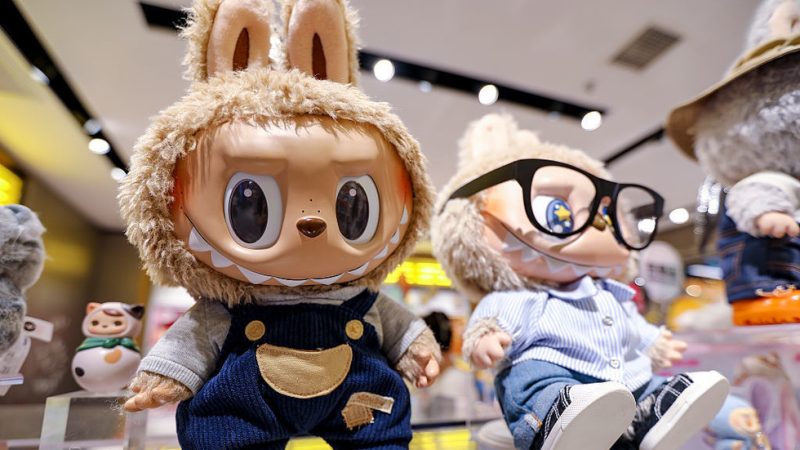
This year, Russia has experienced a surprising surge in popularity for Labubu, a collectible toy character. E-commerce platform Wildberries reports astounding sales figures, revealing that Russians have spent over 1.5 billion rubles (approximately $17.6 million USD) on these unique plush toys.
Created by Hong Kong designer Kasing Lung, Labubu—a small, elf-like figure with distinctive sharp teeth—initially gained traction after its launch in 2019 by Chinese company Pop Mart. The blind box format added to its allure, transforming it into a sought-after collectible. However, its global fame truly exploded in 2024 following a series of celebrity endorsements. K-pop star Lisa’s Instagram posts featuring the dolls sparked a frenzy, quickly followed by similar endorsements from Rihanna, Kim Kardashian, and even David Beckham. This celebrity attention propelled Labubu into the international spotlight.
While Labubu products appeared on Wildberries in July 2024, sales remained relatively low until May of this year. Then, something remarkable happened: demand skyrocketed by a staggering 4,700% compared to the previous month. Sales quickly reached tens of millions of rubles, leading to a phenomenal June where sales increased another 1,190% compared to May, nearing a billion rubles. Wildberries reports that as of today, total sales since January 1st have reached a remarkable 1.582 billion rubles ($17.6 million).
This unexpected craze has sparked debate within the Russian government. Some lawmakers, including Ekaterina Altabaeva and Vitaly Milonov, have called for a ban, citing the toys’ “monster-like” appearance and potential negative impact on children. Concerns have also been raised about inadequate labeling on some products, leading to calls for stricter regulations. However, others, including the state quality watchdog Roskachestvo, have defended the toys, stating they meet safety standards and describing Labubu as a “kind, toothy elf.” Pediatric specialists have also weighed in, suggesting there’s no evidence of psychological harm, emphasizing the importance of parental supervision.
The Labubu phenomenon highlights the unpredictable nature of consumer trends and the power of celebrity endorsements in driving global demand. The ongoing debate surrounding the toys’ potential impact on children underscores the need for careful consideration of the content and messaging of children’s products.










